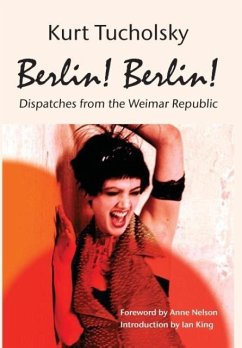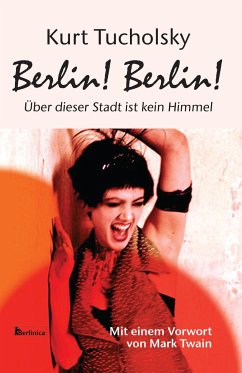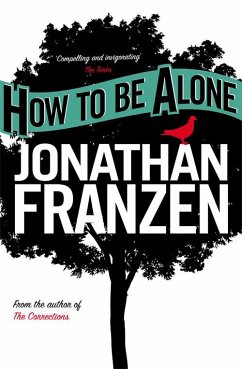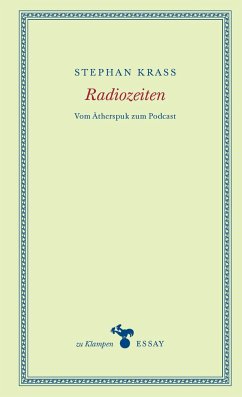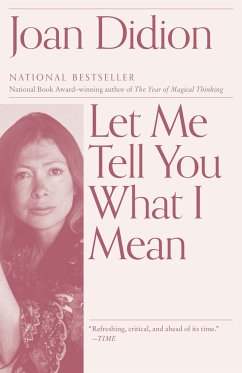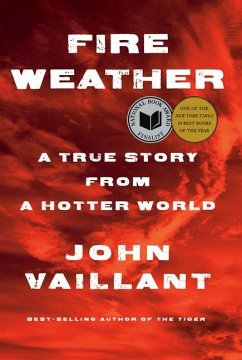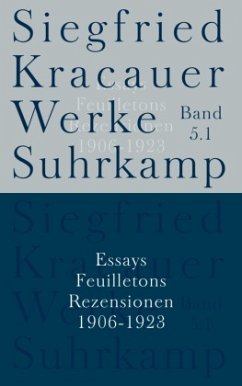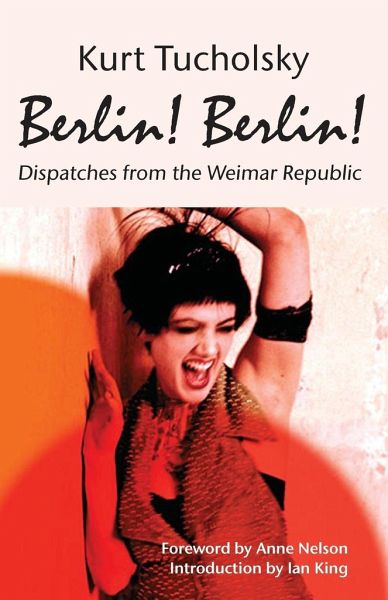
Berlin! Berlin!
Dispatches from the Weimar Republic
Herausgegeben: King, Ian;Mitarbeit: Nelson, Anne
Versandkostenfrei!
Versandfertig in 3-5 Tagen
14,00 €
inkl. MwSt.
Weitere Ausgaben:

PAYBACK Punkte
0 °P sammeln!
Berlin! Berlin! is a selection from the "man with the acid pen and the perfect pitch for hypocrisy," as Peter Wortsman characterizes him. This book is a complete collection of Tucholsky's news stories, features, satirical pieces, and poems about his hometown Berlin. It depicts Weimar Berlin, its cabarets, its policies, its follies, its ticks, and its celebrities, such as Pola Negri, Gussy Holl, Bert Brecht, Max Reinhardt, or Heinrich Zille. The book contains some of Tucholsky's most famous pieces, among them Berlin! Berlin!, a feature of the stereotypical Berliner on the phone, on vacation or ...
Berlin! Berlin! is a selection from the "man with the acid pen and the perfect pitch for hypocrisy," as Peter Wortsman characterizes him. This book is a complete collection of Tucholsky's news stories, features, satirical pieces, and poems about his hometown Berlin. It depicts Weimar Berlin, its cabarets, its policies, its follies, its ticks, and its celebrities, such as Pola Negri, Gussy Holl, Bert Brecht, Max Reinhardt, or Heinrich Zille. The book contains some of Tucholsky's most famous pieces, among them Berlin! Berlin!, a feature of the stereotypical Berliner on the phone, on vacation or doing "bizness", more than one satirical biography of the author himself, and some of his most famed stories such as where the holes in the cheese come from, or about the lion who escaped the Berlin zoo. Herr Wendriner, the chatty Berlin businessman makes an appearance, as well as Lottchen, the flapper, modeled after one of Tucholsky's real-life girlfriends. Also Tucholsky's long-term friends Karlchen and Jakopp are part of this book.In Weimar Germany, Tucholsky was big, the most brilliant, prolific and witty cultural journalist of his time.-William Grimes, The New York Times"Kurt Tucholsky was one of the most brilliant German Jewish writers and satirists of his time. He had to leave his beloved Berlin because of his biting, yet witty stories against militarism and Nazi Fascism. Today's Berliners adore him as one of the greatest sons of this city. The world has yet to discover his genius."-Peter Schneider, author of The Wall Jumper and Eduard's Homecoming"A representative selection from the man with the acid pen and the perfect pitch for hypocrisy, who was as much the voice of 1920s Berlin as Georg Grosz was its face."-Peter Wortsman, Author of A Modern Way to Die and Ghost Dance in Berlin"Kurt Tucholsky was one of the most brilliant writers of republican Germany...More than any other person, he foresaw what was coming.... What his readers had enjoyed as the capricious fantasies of a clever satirist has now been enacted in bitter reality, even to a satirical forecast of his own mode of death."-From the New York Times' 1936 Obituary
Dieser Artikel kann nur an eine deutsche Lieferadresse ausgeliefert werden.




